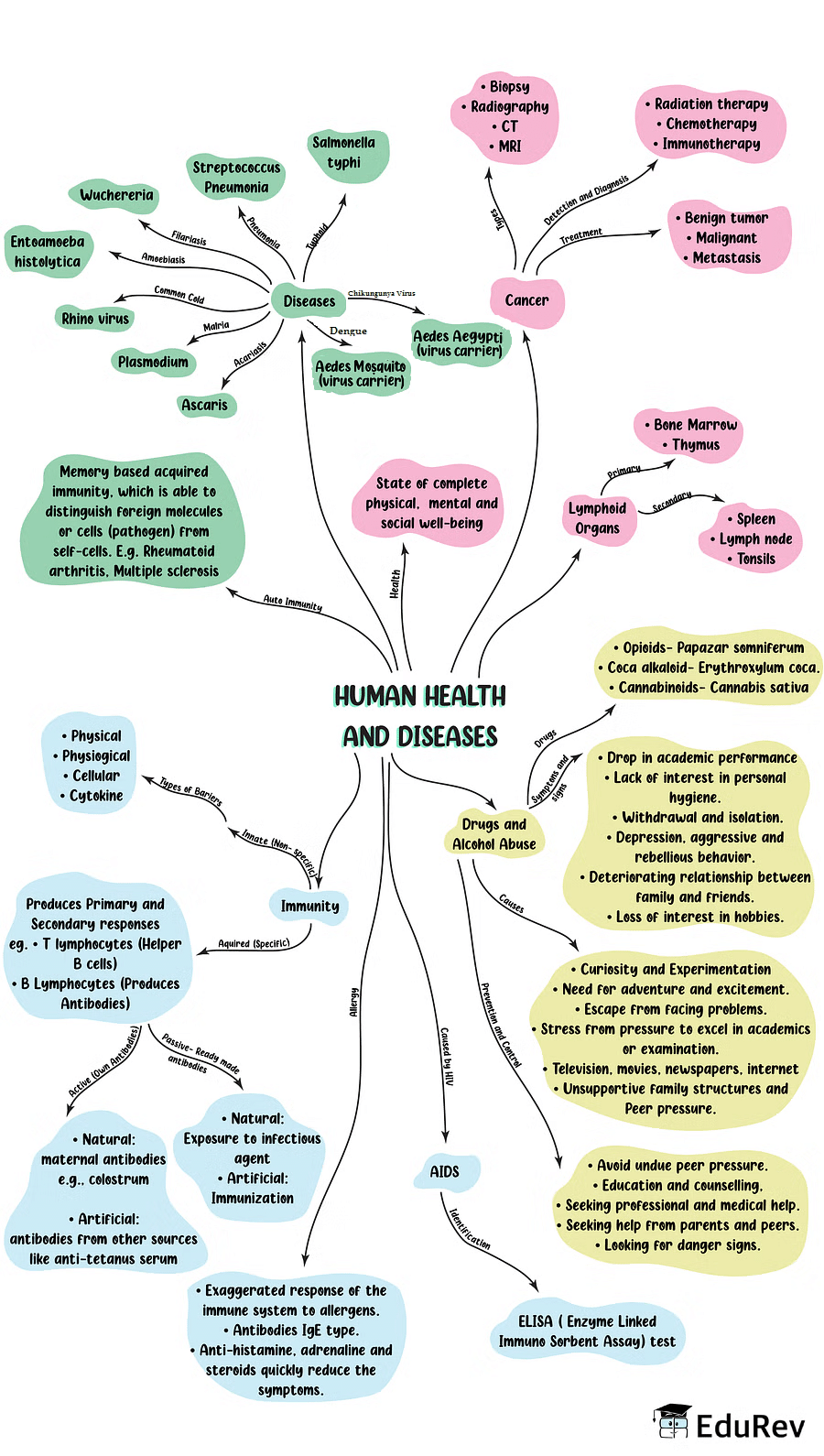UPSC Exam > UPSC Notes > Class 6 to 12 NCERT Mindmaps for UPSC Preparation > Mind Map: Human Health and Diseases
Mind Map: Human Health and Diseases | Class 6 to 12 NCERT Mindmaps for UPSC Preparation PDF Download

The document Mind Map: Human Health and Diseases | Class 6 to 12 NCERT Mindmaps for UPSC Preparation is a part of the UPSC Course Class 6 to 12 NCERT Mindmaps for UPSC Preparation.
All you need of UPSC at this link: UPSC
FAQs on Mind Map: Human Health and Diseases - Class 6 to 12 NCERT Mindmaps for UPSC Preparation
| 1. What are the common symptoms of COVID-19? |  |
Ans. The common symptoms of COVID-19 include fever, cough, and difficulty in breathing. However, it is important to note that these symptoms can vary from person to person and some individuals may be asymptomatic.
| 2. How does smoking affect human health? |  |
Ans. Smoking can have numerous adverse effects on human health. It increases the risk of developing various diseases such as lung cancer, chronic obstructive pulmonary disease (COPD), heart disease, and stroke. Additionally, smoking can also lead to respiratory infections, decreased lung function, and worsen asthma symptoms.
| 3. What is the difference between a bacterial infection and a viral infection? |  |
Ans. Bacterial infections are caused by bacteria, which are single-celled microorganisms. They can be treated with antibiotics. On the other hand, viral infections are caused by viruses, which are smaller than bacteria and cannot be treated with antibiotics. Viral infections often require supportive care to alleviate symptoms and allow the body's immune system to fight off the infection.
| 4. How can I prevent the spread of infectious diseases? |  |
Ans. To prevent the spread of infectious diseases, it is important to practice good hygiene habits. This includes regularly washing hands with soap and water, covering the mouth and nose when coughing or sneezing, avoiding close contact with sick individuals, and staying home when feeling unwell. Vaccination against preventable diseases also plays a crucial role in preventing their spread.
| 5. What are some risk factors for developing cardiovascular diseases? |  |
Ans. Several risk factors contribute to the development of cardiovascular diseases. These include high blood pressure, high cholesterol levels, smoking, obesity, a sedentary lifestyle, diabetes, and a family history of heart disease. It is important to manage these risk factors through lifestyle modifications and medical interventions to reduce the risk of cardiovascular diseases.
Related Searches






















